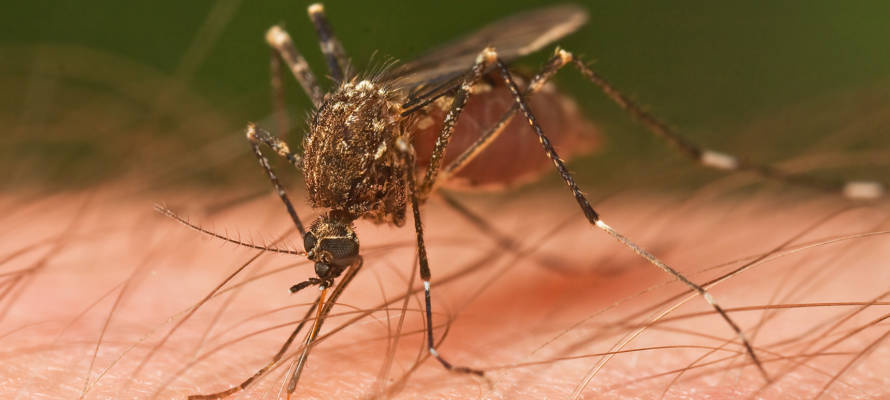Trial tests using the gel showed an 80% reduction in mosquito bites and a 99.4% reduction in eggs produced by female mosquitos.
One of the most dangerous predators to humans in nature is the barely visible mosquito.
Although most of us have experienced mosquito bites, these tiny insects’ effects can often be more than just annoying.
Mosquitos are more deadly to humans than any other creature in the world, and the US Centers for Disease Control have proven the role mosquitos play in spreading potentially deadly diseases such as malaria, dengue, West Nile, yellow fever and Zika.
This summer, 71 people in Israel have died from the West Nile Virus carried by mosquitos.
A total of 916 people in Israel have been diagnosed with the West Nile virus, which thrives in wet and hot conditions, most notably in Eilat.
Many people avoid getting bitten by mosquitos by using commercially sold insect repellents, but these carry their own risks.
The most efficient mosquito repellents, such as DEET (diethyltoluamide), contain substances the US government’s National Center for Biotechnology Information calls “a silent environmental chemical toxicant.”
The search for something that will repel mosquitos while avoiding toxic chemicals harmful to health and the environment is ongoing, but Israeli scientists may have found a solution.
Daniel Voignac, a researcher and PhD candidate at the Hebrew University of Jerusalem, and his team are developing a cellulose-based gel that dries quickly on the skin and can prevent mosquitos from picking up human scents while interfering with their reproduction.
Unlike the toxic chemicals in most insect repellents, cellulose is comprised of carbon, hydrogen, and oxygen found in vegetation.
Voignac’s supervising professor at Hebrew University, Yossi Paltiel, had the idea for developing the cellulose gel when he complained that he had to limit his gardening time to avoid mosquitos.
A team including Paltiel, Shoseyov, Voignac, Prof. Jonathan Bohbot, and PhD candidate Evyatar Sar-Shalom arrived at using cellulose after unsuccessful attempts using graphene.
Voignac told No Camels, “We were working in the lab with [this] cool material that is very thin, transparent and derived from plants. So we knew how to use this material.”
Trial tests using the gel showed an 80% reduction in mosquito bites and a 99.4% reduction in eggs produced by female mosquitos.
“This also meant that we could create maybe an effective solution to prevent the proliferation of mosquitoes,” he says.
The gel has been patented, and the team has published a study on its findings that has received international attention.
Currently, the team is testing the gel again and developing a prototype.
“If we have real technology, we want to race towards deploying it as fast as possible to the people that want it,” said Voignac.
Do You Love Israel? Make a Donation - Show Your Support!
Donate to vital charities that help protect Israeli citizens and inspire millions around the world to support Israel too!
Now more than ever, Israel needs your help to fight and win the war -- including on the battlefield of public opinion.
Antisemitism, anti-Israel bias and boycotts are out of control. Israel's enemies are inciting terror and violence against innocent Israelis and Jews around the world. Help us fight back!



